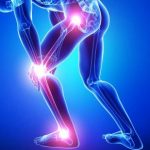In this article we take a look at the signs of vitamin deficiency, the symptoms and strategies to overcome the problem. Many people consider vitamin deficiencies as a thing of the past. Unfortunately, the truth is that a large proportion of the UK`s population has a vitamin deficiency of some sort. In fact, this could be said for much of the Western world today. This is mainly due to poor diet. You may eat well, but there are other factors (such as health conditions and age) that can have an impact on your body’s ability to absorb vitamins in your food.
Vitamin deficiencies can alter our bodily functions and its processes at the most basic cellular level, including enzyme function, digestion, water balance, new signalling, and metabolism. It is vital for our body’s function, development and growth that we resolve these deficiencies immediately.
Vitamin deficiency anxiety, vitamin deficiency fatigue, aswell as vitamin deficiency headaches are also common problems associated with this condition.
Diseases caused by deficiencies in vitamins and minerals include osteoporosis, which can be triggered by a lack of vitamin D and calcium. As well as low iron counts leading to anaemia, which is a drain on your energy. There are several tell tale symptoms related to vitamin deficiency and to find out more there is a vitamin deficiency symptoms chart that will provide up to date information on which diseases can be caused through lack of proper vitamins and minerals. In this article we look at seven incredibly common nutrient deficiencies and how they can be rectified.

Calcium
It maintains strong bones, controlling nerve function and muscles. Signs of calcium deficiency include muscle cramps, poor appetite, fatigue, and abnormal heart rhythms.
The best way to combat a calcium deficiency is by a good dose of regular exercise, particularly resistance training for strong healthy bones. Also getting three servings of yogurt or milk every day. Other excellent sources of calcium include dark leafy greens, cheese, and calcium-fortified orange juice.
Vitamin D
Another vitamin that is critical to bone health. Long-term vitamin D deficiency can lead to a softening of bones – but short-term deficiency symptoms include muscle aches, muscle weakness, and fatigue.
There are several ways to get the vitamin D your body needs, getting three servings of yogurt or fortified milk every day, and eating fatty fish (like tuna or salmon) twice a week, and taking advantage of sunshine whenever it presents yourself (just remember to wear sunscreen).
Potassium
Potassium works to keep the heart, kidneys and other organs functioning properly. Short-term potassium deficiencies are common during bouts of vomiting, diarrhoea, taking antibiotics and sweating excessively. More serious potassium deficiencies could be a result of kidney disease or eating disorders. Symptoms of deficiency include muscle weakness, weight loss, constipation, as well as abnormal heart rhythm in severe cases.
Bananas, milk, whole grains, peas, vegetables, and beans are all excellent, natural sources of potassium.

Iron
When iron levels drop too low your body is unable to carry oxygen effectively, which affects the body’s ability to make red blood cells. Low iron levels can lead to anaemia, which causes fatigue. If your hair is thin and dull and your skin is pale, then you may be iron deficient.
Try eating lentils, beef, oysters, spinach, iron-fortified cereals and beans (chickpeas, white beans, and kidney beans) to boost your iron levels.
Vitamin B12
Unfortunately, this is becoming a more common deficiency, with weight loss surgery and veganism growing in popularity. If you feel you are lacking in this vitamin, you can request a vitamin B12 deficiency test. Symptoms include fatigue, anaemia, swollen tongue, paranoia, hallucinations, memory loss, balance issues and numbness in extremities.
Vitamin B12 is available from animal sources including chicken, fish, milk, and yogurt. For vegans, there are meat substitutes, non-dairy milk, and breakfast cereals that are fortified with B12.
Folate
Folic acid is especially important for women in the childbearing age bracket. Prenatal vitamins contain a substantial dose and deficiencies cause decreases in cell numbers, as well as large red blood cells. During pregnancy, this can have an impact on neural tube defects for the unborn. Folic acid deficiency symptoms in adults may include grey hair, mouth ulcers, fatigue, a swollen tongue, and poor growth.
If you’re aiming to get pregnant, or could fall pregnant, you should be taking folate supplements daily. Folic acid deficiency in the elderly can also be a common problem. Otherwise, you can get your fix from oranges, lentils, leafy greens, and beans.
Magnesium
Another key aspect for promoting bone health, deficiencies include fatigue, nausea, vomiting, and a loss of appetite. Great sources of magnesium include nuts, edamame, and black beans.
To avoid any form of vitamin deficiency it is recommended to eat a healthy well-balanced diet, get plenty of exercise and try to get outdoors regularly. This way you are drastically reducing your chances of showing any signs of vitamin deficiency and should be able to live a normal healthy life.











Leave A Response
You must be logged in to post a comment.